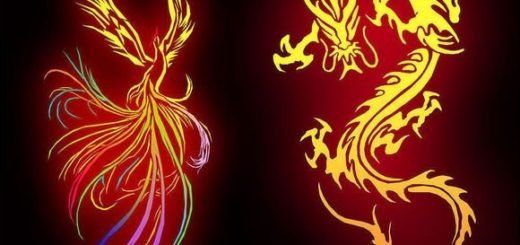Childhood Nightmares: Memory of the Chinese Generation of the 1960s | Book Review

We often see the tragic pictures of the revolutionary martyrs shouting slogans to the death in Chinese Communist movies. However, in the childhood memories of this novel’s narrator, Baoguo, he has witnessed one of his acquaintances jumping into a steel furnace. This tragic death was not in a movie, but a real event for Baoguo. The horrible sight has been lingering in his mind ever after, reappearing in his nightmares, which are so miserable that he cannot breathe in his dreams. The Chinese writer XIE Hong uses fluent language in his novel Mao’s Town to recall China in the 1950s and 1960s through the childhood perspective of Baoguo and presented various historical events during the Great Leap Forward Movement and the Cultural Revolution. Xie provides the narrative clues by Baoguo and his good friend Sun of their families’ stories to describe their growth experiences, and how the times and social encounters changed them and their families.
In that respect, Baoguo’s family is the epitome of a Chinese family of the era. His parents are ordinary workers who follow the Party’s call and Chairman Mao’s words. They are very busy with their work, so there is a lack of communication between them and their children. Their relations amount simply to orders, refusals, and brutal beatings. The parents do not tell stories to their children, and have no patience for their children’s “why” questions; they also worry that the children are troublemakers. They merely educate their children with sayings like, “Keep away from bad guys,” “Keep out of trouble,” “Remember, we are nobody, we must be careful every moment,” and “Never get involved with any mob.”
On the other hand, Baoguo’s friend Sun’s family are Indonesian returnees, with knowledge of the world outside of China and a love of life. They are the local window for understanding the world. Sun’s mother, Jing, is a competent tailor, and her dad, Ahn, is an English teacher who loves fishing. Their family enjoys a harmonious and happy parent-child relationship that makes Baoguo envious. Jing does beautiful clothes and tells fairy tales, such as Snow White. Ahn can make fish hooks, chat with children, and encourage them to do the right things; the family is very united by mutual understanding and support.
However, all families are affected by the events of the times. In that absurd, chaotic era, Sun’s happy family experiences a variety of shocks. In one instance, Sun’s sister, Moon, realizes that she has fulfilled her dream by escaping her repressive town. However, she is unable to pursue her own love. She is mistreated by the powers that be and eventually chooses to commit suicide. Sun’s father, for his part, is framed as a spy because of his overseas relations and learning English on the radio. He is therefore forced to be “re-educated” at the cadre school, is tortured in a cowshed by Red Guards with his favorite fishing hooks to insult him. He cannot bear it and jumps into the river to commit suicide. Since Jing loves beauty, which in that grey age makes people envy her, and she eventually suffers retaliation. The Red Guards cut holes into her pretty clothes to torture and humiliate her. Finding this unbearable, she jumps into a steel furnace.
In the Mao era, people never knew how they would be treated, and everyone had to follow the current political trend. When the persecution became widespread, people did not feel safe and did not dare to speak casually at home. Baoguo’s antagonist Fatty, and his father, Lee, are mainstream figures in the society of the time and manipulate the fate of the Sun family and the Black Five Elements. In that era, people had a beautiful communal canteen, but finally suffered a great famine, so they had to eat bark and earth to survive; people also struggled to make steel so as “to catch the British and surpass the Americans,” and they are encouraged to hand over all their iron and chop down all their trees, which makes the birds disappear and the fields barren.
This was a painful period in history, which is engraved in the memory of each person who endured it. Baoguo uses simple language to describe his fears as he witnesses and participates in these events; his memories as an individual outline of the era. Mao’s Town is a powerfully tragic work, although Baoguo and Sun survive. In this novel, not only can we see the history of China in the 1950s and 1960s, but also, through the traditional aesthetics through the story, a deeper understanding of the Chinese and their culture: people in Mao’s Town embody the characteristics of the Chinese people, so when the tragedy of the destruction of beautiful things strikes, their good, persevering, warm-hearted side still shines.
Reviewed by JU Mei, a teacher at Shenzhen University
(Translated by Jicheng Sun and Hal Swindall)
MAO’S TOWN by Xie Hong, published by Whyte Tracks Publishing, (April 16, 2018)


















